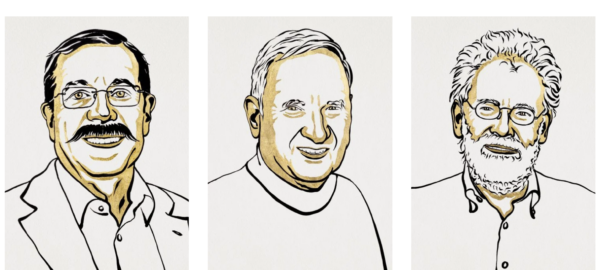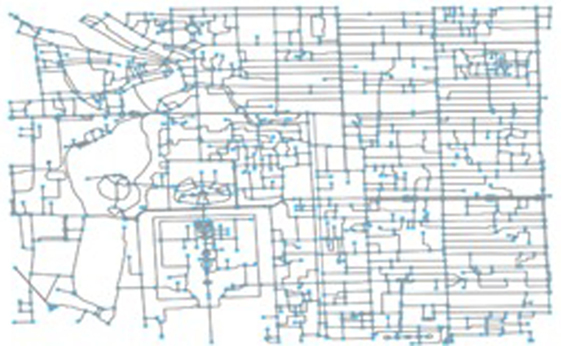We are quantum!
“We are quantum!”See – yes, finally after a long time, Austria has a again a Nobel Prize winner. Probably everyone already knows that physicist Anton Zeilinger from Austria has won the Physics Nobel Prize 2022 together with his colleagues John F. Clauser and Alain Aspect. The topic: “for experiments with entangled photons, establishing the violation of Bell inequalities and pioneering quantum information science”. – So basically it is about using two locally separated but entangled particles for the secure transmission of information. If you want to know more about this, I can recommend this video.
Quantum technologies like this will be seen as normal in the future or will not even be perceived by us when we talk about secure transmission on the Internet. But what is often overlooked is the fact that quantum technology is more than that. That’s why I wanted to briefly present at least a few applications where quantum technology is also used. Applications that are less obvious or reported about in the media.
Cybersecurity
Even though Zeilinger’s research has to do with secure transmission, this is about security through new encryption algorithms. Attacks on computer systems occur every day and so-called crypto algorithms are used as a protective measure for transmission over the Internet or for securing stored data. However, these existing algorithms are vulnerable to QC as Prof. Shor demonstrated almost three decades ago and therefore new algorithms are needed. New QC-secure algorithms will then replace the existing ones in the long term and make transmission over conventional transmission links secure.
The speed at which this must happen is also shown by Y2Q – a hypothetical point in time at which the classic algorithms are no longer secure. And this is no longer purely hypothetical, since even large credit card companies like Mastercard are moving on to quantum-secure algorithms.

Finances & Investment
In this special area quantum computers will be well suited to solve current problems. In finance the new technology could be used to solve very complex tasks like in risk management or in fraud detection. Another problem to tackle is portfolio optimization & location, where the quantum annealing could be applied. And recently a large Austrian Bank announced a cooperation with IBM to work together to solve such a kind of problems.
Logistics & Supply Chain
Optimization of supply chains or delivery routes are problems that a classical computer cannot solve efficiently. This is also known as the “traveling salesman problem” and a classical computer quickly reaches its limits due to the data-intensive and highly complex tasks. Quantum computing in the form of quantum annealers offers possibilities to compute these problems, even in real-time.
Manufacturing processes
Quantum computing is very suitable for optimization tasks and therefore manufacturing processes can also be optimized. Manufacturing processes include painting work at car manufacturers, where the sequence of cars for painting is calculated with the smallest possible changeover effort (https://quantumai.google/cirq/experiments/qaoa/binary_paintshop).
Chemistry
Chemical processes often use An example is the production of fertilizer by the Haber-Bosch process, which requires energy in the form of natural gas to generate the necessary temperatures. Approximately 3-5% of the world’s gas production is used for this purpose, which corresponds to 1-2% of the world’s energy demand. If a new possibility of production could be found here, the dependence on natural gas could be reduced and also a significant contribution to climate protection could be made.
Random numbers
Random numbers are also a subject of quantum physics. Random numbers have a fixed place not only in lotteries, but also in securing networks. Random numbers are needed as keys to secure the transmission of data. Or also for training data models of an AI. Or even for calculations like the Monte Carlo method. The more random, the better.
Classical computers also reach their limits here or cannot do it at all, because computers are deterministic, i.e., everything is predetermined. This results in the problem that computers can only generate pseudo-random numbers (so-called PRNG). These are random numbers that only seem to be random. Often one helps oneself with external hardware. Here, too, quantum phenomena can help and generate a continuous stream of random numbers by means of quantum-based random number generators (QRNG).

Artificial Intelligence
AI is already in use in many areas, and it is hard to imagine life without it. Be it in simple image recognition tasks for diagnosis (https://eyewiki.aao.org/Artificial_Intelligence_in_Retina) or in the development of new drugs or in the control of cars (aka. self-driving cars). Here, quantum computing could help speed up the training of AI models. This would not only speed up, but also save energy (https://numenta.com/blog/2022/05/24/ai-is-harming-our-planet) if the computation of the models is done more efficiently.
Conclusion
Quantum computing is still partially technology of the future, but it is now time to start to invest into quantum computing. Either by investing time to learn how quantum computer works or to find specific problems in the company, which can be better solved with this new technology. Or maybe be solved at all!





